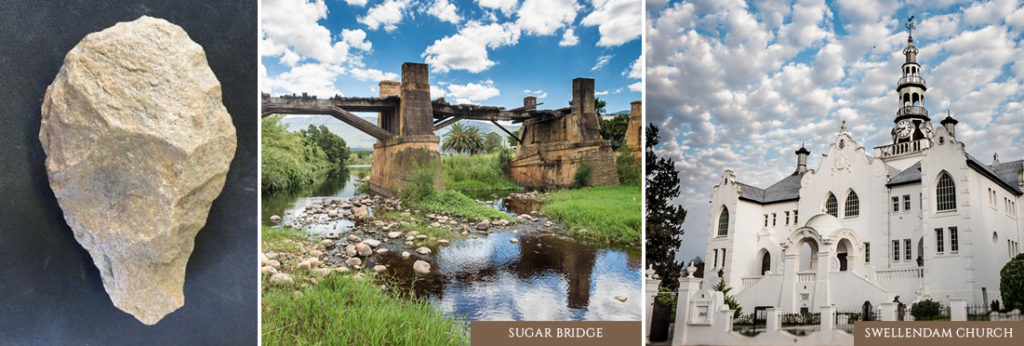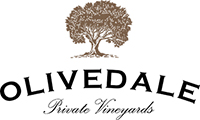OUR HERITAGE

The name Olivedale is something of a misnomer. It has little, if anything to do with the cultivated Mediterranean fruit, but refers to the indigenous Olievenhout, or wild Olive tree that can still be found in the area surrounding Swellendam. Olivedale is a rural community within the Buffeljagsrivier settlement that is part of the Swellendam District.
From a distance it looked like an ordinary broken stone. But when farm manager, Adrian Sutton, got closer, he realised that the piece of rock surrounded by cobbles of different sizes, was not shaped by accident. Its symmetrical design formed an axe-head that could fit into a large hand. It was later identified by experts as having been made during the earlier Stone Age between about 400,000 to 1 000 000 BC. They are often found in old river gravels, where the cobbles that were rounded by the natural tumbling action of water in the river over millions of years were left on terraces above the river as it cut deeper into the valley.
And so a strand was formed between the ancient and the modern; demonstrating the oneness of existence; a link between the past and the present; a link spanning time and space. For upon that site has risen the heart of the Olivedale vineyard project – the Cellar. And in the surrounding 22 hectares of the starkly different virgin soils, vines have grown to supply their nectar to that heart. Who knows what tiny traces were left behind by those ancients in their wanderings and hunts? And the thousands before and after them. Those traces, microscopic they may be, have all been absorbed into the very earth that feeds the vines.
Today’s inhabitants of the Overberg region of the Western Cape still have strong links to a colourful, pioneering and somewhat defiant past and Olivedale Vineyards is a fitting tribute to that spirit. After the Dutch established a replenishment station in Cape Town in the mid- 17th century, trading with the indigenous pastoral Khoikhoi brought them Eastwards over the Hottentots-Holland Mountains. Within a century, the area was declared a magisterial district named Swellendam, to become South Africa’s third oldest town. But fifty years later, the local settlers rebelled against the mal-functioning administration of the VOC (Dutch East India Company) and declared an independent Republic. That lived for only some 90 days after the British occupation of the Cape Colony.
Olivedale Vineyards’ link to wine-making goes back even further. South Africa can justifiably take its place amongst the world’s best and oldest wine producers. It’s been making wine since 1659 after vines were imported from France in 1655. From then, South Africa experienced the same evolutionary phases as all the traditional “old” wine producers. Today, South Africa’s best wines can hold their own against the best of the “old” wine producing countries. All of that experience, plus some revolutionary ecological thinking, is being brought to bear in every facet of Olivedale’s wine-making.



